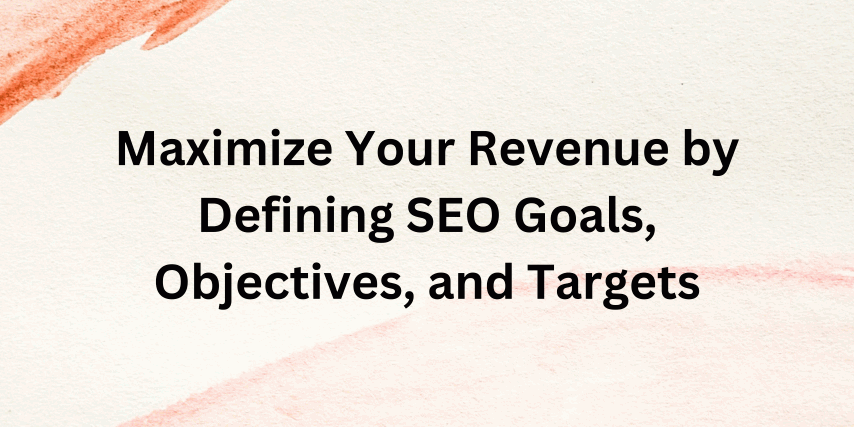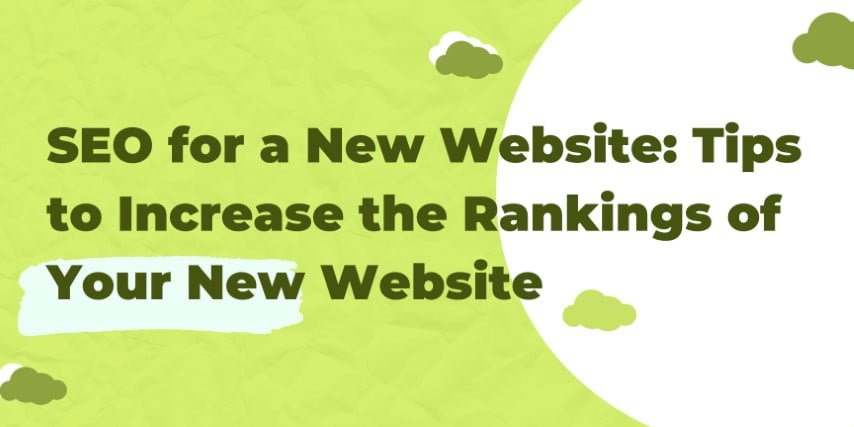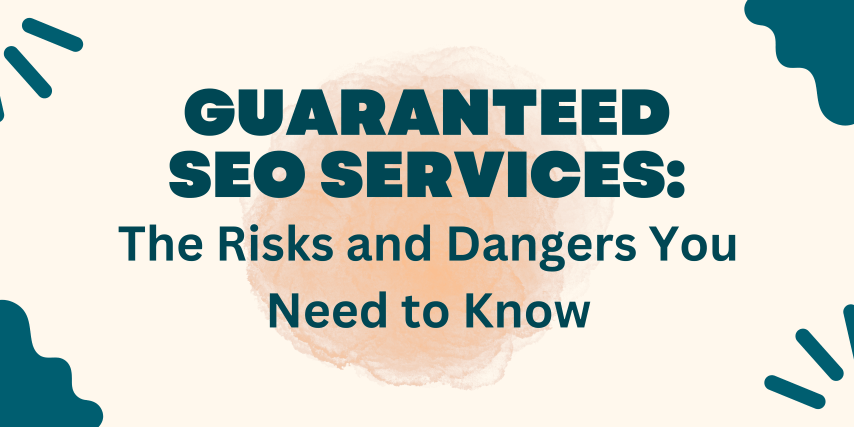The Ultimate Objective of a Search Engine
Search engines like Google and Bing are dedicated to assisting users in finding the information they need for research, answers to questions, and achieving their goals. The users’ needs can range from simple curiosity to complex data requirements.
The main aim of search engines is to assist users in navigating the vast online information and locating what they are searching for. Search engines use various methods to classify and organize the results of a search.
- The search engine tries to identify the user’s query type, such as a who, a what, a why, or something else.
- It analyzes the user’s intent and curates a relevant SERP (Search Engine Results Page) to meet their needs.
In some instances, the user’s intent is straightforward, while in other cases, the search engine may identify a secondary intent that goes beyond the user’s initial specification.
To increase user satisfaction, search engines aim to accurately determine the user’s goals and needs. As a result, SEO (Search Engine Optimization) aims to ensure that search engines fully understand the content on the website, blog, or landing page.
What are SEO goals?
SEO goals are crucial for the success of your online presence. They are carefully defined and quantifiable targets that you strive to attain over a specific time frame. The ultimate aim of these goals is to reach a wider audience through organic search and convert them into loyal customers.
Setting well-defined SEO goals provides a clear direction for you and your team to work towards. These objectives act as a guiding light, helping you prioritize your efforts and stay focused on what matters most for your company’s growth.
Maximize your impact by making sure each goal is specific, meaningful, and actionable. This will ensure that every decision you make and every strategy you employ is aligned with your overall vision for success. Don’t waste time and resources on aimless pursuits – focus on what will drive your company forward.
Why are SEO Objectives Crucial for Business Success?
Having clear SEO goals is crucial for the success of your digital marketing strategy. Without a focused target, your efforts can lack direction and may not bring desired results.
Establishing SEO objectives gives you a roadmap to follow and helps ensure that your efforts are driving towards a specific, measurable outcome.
Having well-defined, actionable SEO goals is the cornerstone of a successful SEO strategy. By clearly outlining your SEO objectives, you can ensure that every decision you make and every action you take is aligned with your overarching goals. This level of focus and intentionality not only helps you stay on track, but also provides a yardstick by which to measure the success of your SEO tactics and content creation.
With specific SEO goals in place, you and your team have a clear target to work towards and the motivation to achieve it.
Unleashing the Power of Purposeful SEO Objectives for Your Business
Before embarking on a long-term SEO strategy for your business, it’s crucial to reflect on the objectives that will drive the greatest impact. Aimlessly working towards multiple goals only leads to wasted efforts and duplicate work.
As a business, identify your desired outcomes and ask yourself critical questions such as:
- Does your company prioritize direct sales, website traffic, brand awareness, or a combination of these?
- Are there specific influencer communities you aim to engage with your message?
- Does your organization/brand require the management of potentially damaging online content?
- Do you sell products or services directly online or through leads generated from the web?
With these answers in hand, you can then tackle SEO with a clear set of purpose-driven goals.
3 customer-centric SEO goals for every step of the conversion funnel
If you want to attract quality leads through your website, customer-centric SEO is the way to go. But, it’s important to understand that your approach to SEO will vary depending on the stage of the customer journey they’re in.
Think of the marketing funnel like a liquid-filled vessel. At the top, there’s a lot of content, but as you move down, it narrows and by the time you reach the bottom, there’s only a stream of highly engaged customers.
With that in mind, here are three goals to keep in mind for each stage of the funnel:
- Top-of-Funnel (TOFU) SEO:
For people just getting to know your brand, your goal is to make them aware of your business by ranking high for keywords related to what you do. Focus on informational keywords that answer their questions and provide valuable, non-salesy content that educates them about your products and services.
- Middle-of-Funnel (MOFU) SEO:
By this stage, visitors are starting to research and decide if your brand is the right fit for them. Establish your authority as an industry expert by consistently sharing high-quality content and highlighting your unique selling points. Your SEO content should be informative, helpful, and authoritative.
- Bottom-of-Funnel (BOFU) SEO:
These are the people who are ready to buy, so your goal is to drive purchases. Target transactional keywords, promote your business, and convince them that you’re the best option through SEO-optimized, sales-focused content.
Remember, the key to success with customer-centric SEO is to understand where your customers are in the funnel and adjust your goals and content accordingly.
6 Common Website Goals and Objectives for SEO Success
Businesses and brands may have unique target demographics and extent of reach, but there are certain SEO goals and objectives that are common among them. Here are six key examples:
- Increased Sales and Higher Conversion Rates
Most websites exist to support a business and bring in revenue. Whether it’s a company looking to attract customers and sell products or individual offering services or ad revenue, the website is set up to drive sales in one way or another.
The company’s SEO goals should support these objectives by improving search engine understanding of the website content and increasing the likelihood of being recommended to the right audience.
- Improved Brand Awareness
Having excellent products and services is not enough for a brand to be successful. Consumers make purchase decisions based not only on the benefits of the product but also on the brand’s lifestyle, image, and identity that aligns with their values. Building brand awareness is crucial for a company to reach this goal.
SEO goals for a website should aim to help consumers become familiar with the brand and its mission, increasing the chances of future conversions.
- Better User Experience
Search engines such as Google and Bing are in the business of helping users find what they’re looking for among the 1.14 billion websites. User experience is essential to the success of any business, whether it’s a search engine, a freelancer, or a brand.
Common website user experience goals include fast site speeds and load times, mobile accessibility, easy navigation, and a pleasant experience that encourages repeat visits and sales. These goals align with SEO goals, as a better user experience leads to better SERP rankings.
- Higher Customer Satisfaction
Bad customer experiences discourage repeat purchases and may even end a potential customer-business relationship. High customer satisfaction is a common objective for any website. It involves providing an intuitive website experience, excellent customer service, and listening to visitors and customers to improve the brand offerings.
- Increased Organic Traffic
Paid traffic is essential for new sites and businesses, but organic traffic is crucial for long-term success. The percentage of incoming organic traffic is the best metric for determining if the website’s SEO goals are being met.
Organic traffic exposes the brand to a broader audience, results in more traffic, higher SERP rankings, and steady brand growth over time.
- Relevant and Valuable Content
Providing relevant and valuable content is an essential aspect of any website. This not only helps to attract and retain visitors but also shows search engines that the website provides valuable information that addresses users’ needs.
Common website content goals include creating informative blog posts, infographics, videos, and other types of content that align with the audience’s interests and needs.
In conclusion, these common website goals and objectives are essential for SEO success. By targeting these areas, businesses and brands can improve their online presence and reach their target audience effectively.
SEO Objective #1: Enhance Your Internal Linking Structure
A well-structured internal linking system is crucial for directing website visitors to relevant pages and resources within your site. Not only does it keep them engaged, but it also plays a key role in optimizing your site for search engines.
Your internal linking structure should align with your sitemap and website organization submitted to search engines for easy navigation and crawling. This helps search engines understand the architecture of your site, regardless of the number of pages.
A logical and coherent linking structure that follows your sitemap benefits both visitors and search engines. The more internal links you have, the stronger your site’s structure appears.
SEO Objective #2: Boost Conversions and Reveue
Conversions refer to the actions taken by customers that lead them towards making a purchase decision. Measuring conversion rates is crucial in evaluating the effectiveness of your marketing efforts and the relevance of your content to leads and prospects.
Higher conversion rates indicate to search engines that your site provides valuable information to visitors, which can improve your search engine ranking.
SEO Objective #3: Increase Visitor Time on Page Metric
Attracting visitors is important, but it’s equally important to keep them engaged on your pages. When visitors spend a significant amount of time on your pages, it proves to search engines that your content is worth reading.
To achieve this objective, improve the quality and length of your content, and consider best practices like incorporating relevant images, optimizing content structures, and using internal linking.
Pages that can be quickly read won’t hold visitors’ attention long enough to impact search engine rankings.
SEO Objective #4: Lower Website’s Bounce Rate
As visitor time on pages increases, your bounce rate will decrease. Bounce rate measures the number of visitors who leave your site after visiting only one page.
High bounce rates can be due to various reasons, including poorly written content, pages not optimized for engagement, and failing to answer search queries.
High bounce rates indicate to search engines that your content is not valuable, which can negatively impact your search engine ranking.
By extending visitor time on pages, you can achieve two critical SEO objectives simultaneously.
SEO Objective #5: Optimize Page Load Time
Page speed is a confirmed ranking factor for Google’s search results. Also, Slow loading times can be frustrating for visitors, leading them to leave your site without exploring its content.
To ensure fast page speeds, minimize the size of images and use updated image formats. Large image sizes and outdated formats can significantly slow down your site’s loading times. Fast page speeds will increase traffic to your site and ensure an enjoyable user experience.
SEO Objective #6: Enhance Domain Authority
The authority of your domain is a crucial aspect of SEO that can significantly impact your search engine rankings. When search engines view your site as authoritative, it boosts your search engine ranking over other sites in your industry.
Domain authority depends on the quality of content on your site and the interactions of visitors with your content. Improving domain authority requires a strong content strategy that answers common questions and provides relevant information.
Increase customer engagement by encouraging comments, shares, and other forms of interaction with your content.
SEO Objective #7: Strengthen Backlink Strategy
In addition to internal linking, backlinking is also crucial for optimizing your site for search engines. Backlinking refers to links from other sites that direct traffic to your site.
A strong backlink strategy enhances your site’s authority, improves search engine visibility, and drives more traffic to your site. Consider partnering with other sites in your industry to increase your backlink count and build your site’s authority.
SEO Objective #8: Optimize for Increased Organic Traffic
Organic traffic is the key to unlocking the full potential of your website’s SEO. It refers to visitors who arrive at your site through search engines, rather than through direct visits or ads.
A high volume of organic traffic indicates that your website is ranking well on search engines and is easily discoverable by users searching for relevant content. To maintain and increase your organic traffic, it is important to abide by best practices in SEO and consistently produce high-quality, relevant content.
Avoiding SEO penalties and maintaining your website’s authority is crucial in ensuring consistent organic traffic growth. One effective strategy to improve your organic traffic is by optimizing for search intent. This involves creating content that answers the questions and addresses the context of user queries.
The search engine algorithms have advanced to understand the intent behind searches, so it is important to adjust your strategies accordingly.
SEO Objective #9: Maximize E-Commerce Sales
For businesses in the e-commerce space, SEO can be a direct source of monetization. Optimizing your product descriptions and names for search queries can increase your website’s visibility and drive sales through high search engine rankings.
While competition in the e-commerce SEO space can be intense, the rewards can be substantial. Developing a robust linking structure and creating content around high-value keywords related to your products can help establish your website as an authoritative source, attracting customers through organic search.
Get One Step Closer to Reaching Your SEO Targets with Organic Search Consultant
As a crucial component of a comprehensive digital marketing plan, SEO is the key to driving successful outcomes and safeguarding your brand’s online reputation and search engine rankings.
Attain your website’s SEO goals with the support of a knowledgeable and experienced team, ensuring consistent progress towards your key objectives and increased online visibility.
Frequently Asked Questions (FAQs):
What is the purpose of setting SEO goals?
The purpose of setting SEO goals is to provide a clear direction for your search engine optimization efforts and measure the success of your website’s performance in search engine results. These goals help you align your SEO strategy with your overall business objectives and target specific, achievable outcomes.
By setting and tracking your SEO goals, you can monitor your progress, identify areas for improvement, and make data-driven decisions to enhance the visibility and credibility of your website in search engines, ultimately driving more organic traffic and leads to your website.
How do I prioritize my SEO goals?
To prioritize your SEO goals, consider the following steps:
- Align with business objectives: Start by aligning your SEO goals with your overall business objectives to ensure that they support the larger picture.
- Assess current performance: Analyze your current website performance, including traffic, rankings, and conversions, to understand where you stand.
- Identify opportunities: Conduct a comprehensive audit of your website to identify opportunities for improvement, such as technical issues or content gaps.
- Set achievable goals: Set specific, measurable, and achievable goals that target high-impact areas for improvement.
- Prioritize based on impact: Prioritize your goals based on their potential impact on your website’s performance. Focus on high-impact goals first, then move on to lower-impact goals.
- Allocate resources: Assess the resources required to achieve each goal and allocate resources accordingly.
- Monitor and adjust: Continuously monitor and adjust your SEO goals as needed to stay on track and respond to changes in the search landscape.
How often should I review and adjust my SEO goals?
It is recommended to review your SEO goals at least quarterly or bi-annually to assess the effectiveness of your strategy and make any necessary adjustments. This allows you to stay on track with your goals and stay ahead of any changes in search engine algorithms or market trends.
Additionally, regular reviews can help you identify any new opportunities for improvement and optimize your overall strategy for better results.
How do I integrate my SEO goals with my overall marketing strategy?
Integrating your SEO goals with your overall marketing strategy is an important step to ensure that all your efforts are aligned and working towards a common goal. Here are some steps to consider:
- Align objectives: Ensure that your SEO goals are aligned with your overall business objectives and marketing strategy.
- Incorporate into marketing plan: Include your SEO goals and tactics as part of your overall marketing plan.
- Collaborate with teams: Collaborate with other teams, such as content and social media, to ensure that all efforts support your SEO goals.
- Use data to inform decisions: Use data from your website analytics to inform your marketing and SEO decisions, and ensure that all efforts are data-driven.
- Measure results: Regularly measure the results of your marketing and SEO efforts and adjust your strategy as needed.
- Continuously refine: Continuously refine and optimize your marketing and SEO strategy as you gather more data and gain insights.
By integrating your SEO goals with your overall marketing strategy, you can ensure that all your efforts are working together to drive the best possible results for your business.





